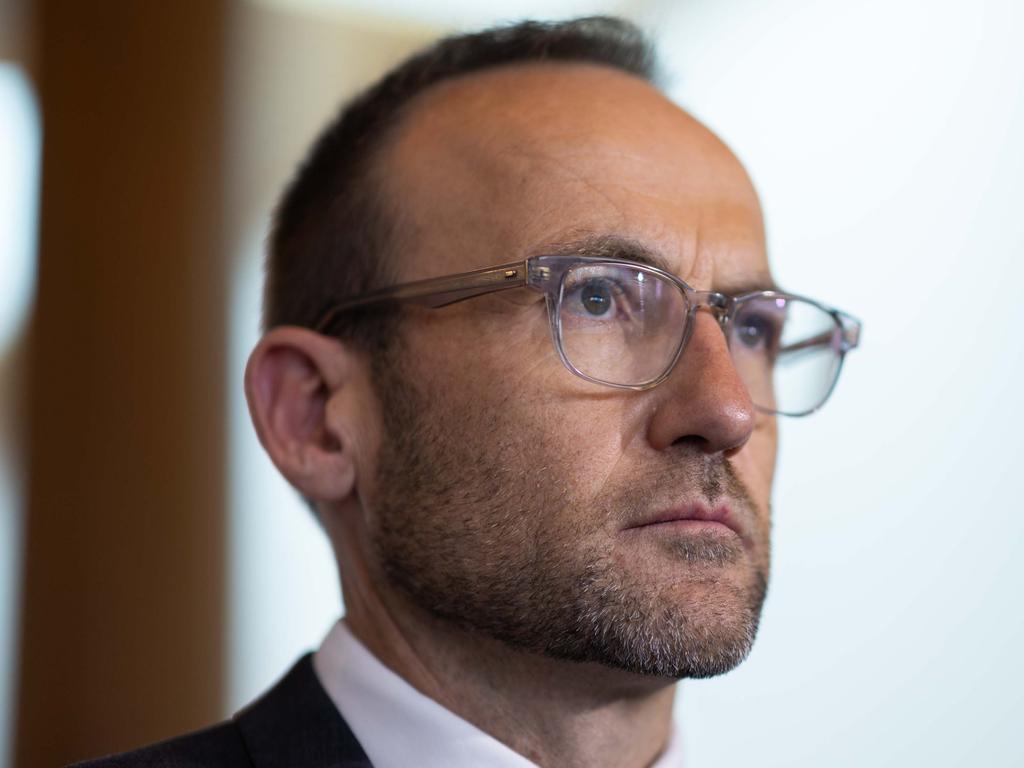Emissions standards: CBA’s Andrew Hinchliff urges passage of safeguard mechanism amendments
The Commonwealth Bank’s head of institutional banking, Andrew Hinchliff, has urged the Senate to pass the proposed amendments to the safeguard mechanism.

The Commonwealth Bank’s head of institutional banking, Andrew Hinchliff, has urged the Senate to pass the proposed amendments to the safeguard mechanism that will set stricter emission standards for the country’s largest polluters.
“We welcome the government’s stance on climate and the new (zero emissions) target they have set for the country,” he said in an interview with The Australian.
“It gives clear directions for industry to invest in and get behind it. The (changes to the) safeguard mechanism will be another step in the right direction.”
The Albanese government has proposed changes to the safeguard mechanism that would force the country’s 215 largest polluters to cut emissions by almost 5 per cent a year to 2030.
Drafted by Climate Change and Energy Minister Chris Bowen, the proposals would establish a new carbon credit trading scheme that could allow companies unable to reduce their emissions to the level required to offset them by buying carbon credits.
The scheme would operate in addition to the government’s existing carbon credit trading scheme, which is a voluntary scheme for companies wanting to reduce their carbon footprint.
The trading scheme to be set up as part of the new, stricter safeguard mechanism, which will apply to big polluters, is backstopped by a federal government offer to supply carbon credits for its scheme at $75 a tonne. But the aim is to provide an economic incentive to the big emitters to make investments to reduce their carbon emissions rather than buy the credits.
The proposal for the new scheme, to come into operation in July, is currently being examined by the Senate, with ACT senator David Pocock criticising it for not being tough enough, saying last week multinational companies were internally pricing carbon at about $100 a tonne.

The current voluntary scheme is seeing carbon credits trading in Australia at $36.50 a tonne.
Mr Hinchliff warned that “perfect should not be the enemy of good” in moving ahead with the changes to the safeguard mechanism. “Hopefully something gets approved and we get going on it, because it has been too long.”
Mr Hinchliff said it was important for companies to have “the right economic incentives” if the world was to get to net carbon zero by 2050. He said this would effectively involve putting a price on carbon and encouraging companies to encourage people to make capital investments that would drive the push to net zero.
“If you believe in climate change, which I absolutely do, you have to have the right economic incentives across industry – not just in Australia, but globally.
“You’ve got to put a price on it. When you put a price on things, it will change the economics of industry and allow people to focus on reducing their emissions and putting capital in the right areas, which is going to drive the move to net zero.”
Mr Hinchliff was speaking as the bank announced a deal for the refinancing of an $800m lending facility to global commodity trading company Viterra, involving new incentives for it to encourage more sustainable financing from the farmers it buys from with a new focus on cotton farming.
Viterra buys commodities including barley, wheat, canola and cotton from growers in Australia selling them to customers in Australia and overseas across a range of industries.
The new deal, which the CBA says is a market leader in sustainability financing, builds on a sustainability-linked deal done with the company a year ago.
The new deal provides more attractive financing on the basis that Viterra can achieve more aggressive targets with the cotton farmers it buys from, including encouraging them to sign up to the Better Cotton Initiative backed by the World Wide Fund for Nature (WWF).
Mr Hinchliff said the deal was the latest in some $27bn worth of sustainability-linked financing the bank had been involved in over the past year.
“Last year we were involved in about 25 bond and loan transactions which were labelled either sustainable or sustainability-linked which equated to about $27bn,” he said.
Mr Hinchliff said the targets encouraging more sustainable development in the local cotton industry were particularly important as Australia had been slower than other countries to commit to the principles of the Better Cotton Initiative.
The targets in the deal include encouraging grower engagement with International Sustainability and Carbon Certification (ISCC), buying ISCC-certified Australian-grown grain and buying protein sourced from overseas farms that follow sustainable agricultural practices, including non-deforestation.







To join the conversation, please log in. Don't have an account? Register
Join the conversation, you are commenting as Logout